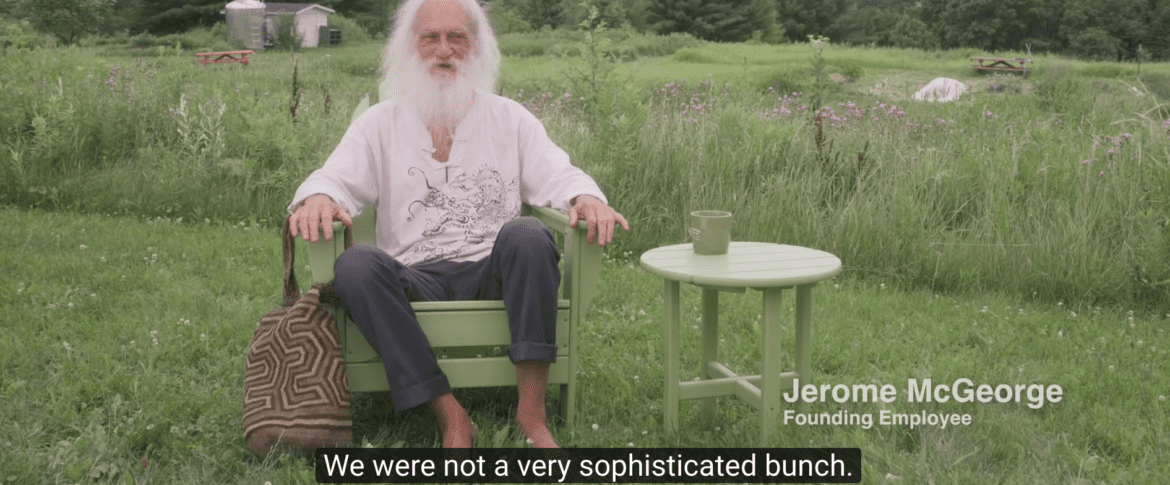Foodpact 2: the marketing problem of the farmer behind your mango
At Fairfood, we love good food. We’d also like the people who produced our food to be able to afford a proper meal. Doesn’t sound like a very big deal, right? Yet it seems to be. In this new blog series, we’re investigating why and, more importantly: how we can solve this. This time: the marketing problem of the farmer behind your mango.
“This beautiful bottle comes from a biodynamic vintner from Saint-Lager, in the Brouilly district”, I am told on a Saturday afternoon, when I’m buying wine for that evening from a specialty store. “Very popular for the slightly fresh taste. We had to get used to the somewhat timid Comic Sans label, but we noticed that customers see a bit of authenticity in that.”
The perks of being a wine farmer. Or a Dutch chicken farmer, if you like. OneWorld deals with the rise of the short-chain farmer in an online article. Joris Lohman, one of the founders of Food Hub, an organization that ‘wants to bridge the distance between ground and mouth’, says that in ‘the world of short chains’ it’s all about concepts: “The successful examples are farmers who have new concepts. Like Kipster, which introduced a new kind of chicken farm. That way you have to look at the market.”
‘Most animal, environment and people friendly’
Kipster looked at that market and positioned itself (rightly so) as ‘the most animal, environment and human friendly’ farm in the world. Something that was picked up by De Volkskrant (‘The most human, environmental and animal-friendly chicken stable in the world’) and The Guardian (‘One step beyond organic or free range: Dutch farmer’s chickens lay carbon neutral eggs’). Trouw adds: “Kipster: the superlative in the environmental field, animal welfare and marketing.”
Marketing, ‘a concept’, storytelling…it all comes down to the same thing: it’s the way you market your product. A social media piece, PR piece, branding piece – like that ‘nice authentic’ wine label. Another great piece of storytelling is this crazy comerical from the American company Organic Valley:
This video cannot be shown because you didn't accept the cookies.
Change choice

Storytelling
Carlos Faes can also do something with this. As the owner of De Philips Fruittuin, Faes also set himself the goal of making the gap between product and consumer smaller. He does so partly by maintaining contact with the consumers of his apples and pears. In the aforementioned article by OneWorld he says: “They [consumers, ed.] like to harvest themselves, they want to know how I work and why. And when I tell them that every year is different and the shelf life of fruit is less this year due to drought, they understand that. A supermarket shelf does not tell a story.”
True, the supermarket shelves don’t tell a story. The figures on the price tags are the most striking element. The pickers of the bananas, the farmers behind the coffee in the shelves cannot personally explain to us that every year is different, that the price of their goods fluctuates due to a drought, hurricane or political unrest. Another thing: they usually don’t have the budgets to hire smart marketing people who can market their products with a good story, for a PR person who writes about a new agriculture technique with a handy press release to the media.
The supermarket shelves don’t tell a story. The figures on the price tags are the most striking element.
Biodynamic mango
The people behind our food remain painfully anonymous, and thus automatically seem to find themselves in the worst positions. Their products are thrown into one big heap or sold at bottom prices (think of our vegetables and fruit) or by an intermediary which cleverly markets (think of your coffee). An intermediary who then takes off with the profit.
Fairfood is also working on closing the gap between ‘ground and mouth’. We do this, for example, by providing consumers with a scannable QR code on their food and—thanks to blockchain technology—the opportunity to get acquainted with the people behind their food. Because a farmer doesn’t have to be physically close in order to close the gap between ground and mouth. In our view, a picture and name can be sufficient to take away that feeling of anonymity. Take the nutmeg farmers in our project with Verstegen Spices & Sauces for example. It seems wonderful when farmers can position themselves as a brand in such applications and, above all, differentiate themselves.
“For me I’ll have one of those slightly sweeter, bio-dynamically grown mangos’ from Carlos of Brazil please, and a bag of Arabica-coffee from Mendoza of Colombia…No, not that one, the other one, the one with the Comic Sans label.”


